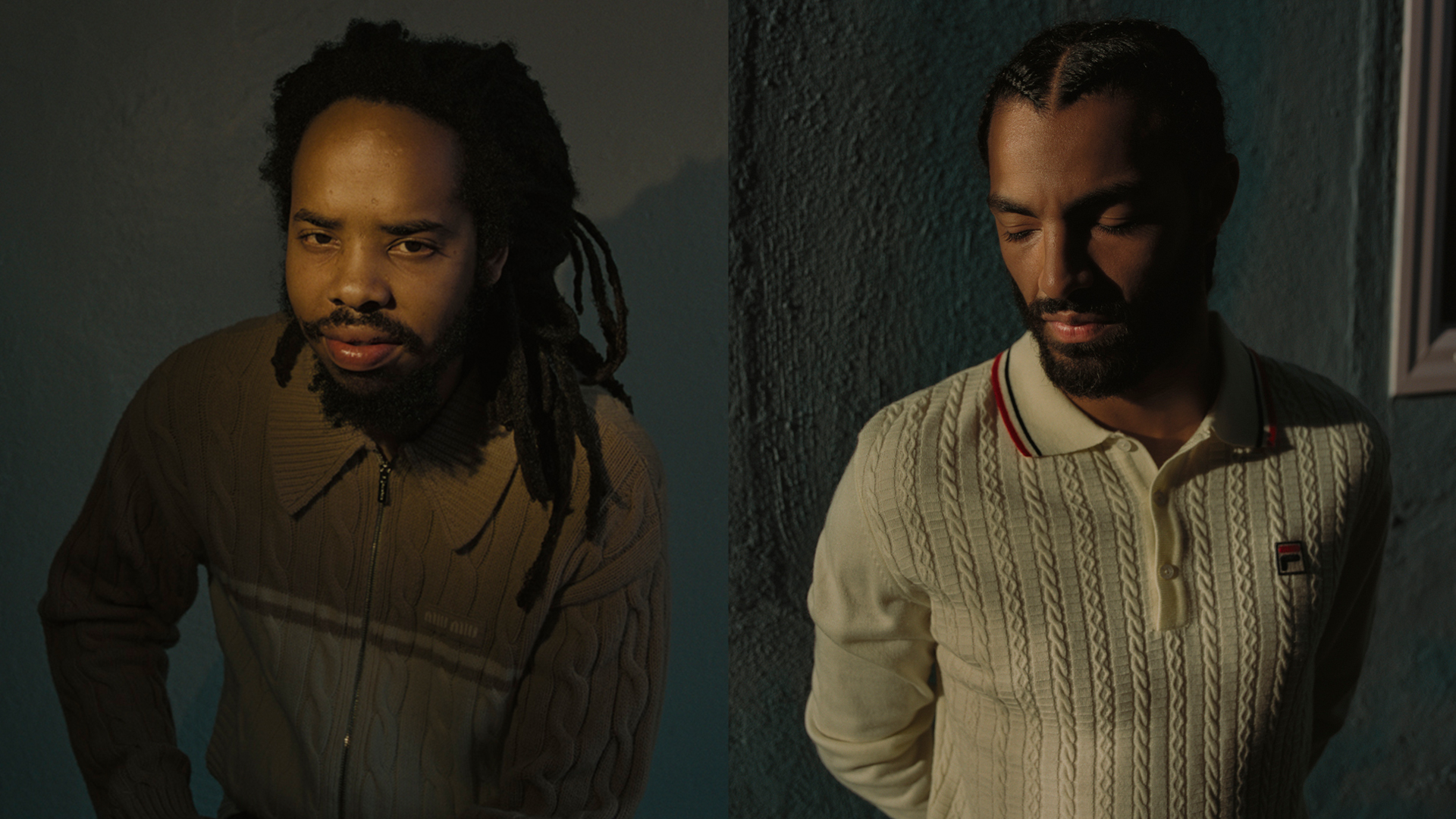This story originally appeared in i-D’s The Royalty Issue, no. 370, Winter 2022. Order your copy here.
Skateboarders are resourceful. From their boards to their fashion sense, everything has a purpose. They might loosen their trucks to move more freely; they might wear utility pants to keep their skate tool on them at all times; they might wear a random washed tee from the thrift store because they know it’ll get thrashed after a long day at the skatepark. Skaters have this fine attention to detail that gets lost in the chaotic motions of their tricks: self-awareness is key so that their boards can become extensions of themselves. Whether it’s skating in silence, or alongside the beat of a song, the act is meditative — a weightless flight between earth and the sky for the seconds that their boards leave the ground. It takes a skater to understand that feeling; it takes a skater to understand another skater. That disconnect between the skater and the inexperienced observer comes across in the music of Thebe Kgositsile aka Earl Sweatshirt, and Sage Elsesser aka Navy Blue.
When Earl Sweatshirt released Some Rap Songs in 2018, his audience became exposed to a different side of his artistry. At 28, Earl Sweatshirt has long been hailed the “king of the underground”, known for his reclusivity after gaining a cult-like following through his shock-rap mixtape, EARL. Sample-heavy, sporadic, and chopped into short disjointed tracks, Some Rap Songs mimicked Thebe’s past as a skateboarder. Coming to terms with the loss of his father and putting himself into a place of shaken vulnerability, the project is more eclectic than any of his previous work, marking his turn towards a more DIY and intimate space within music.
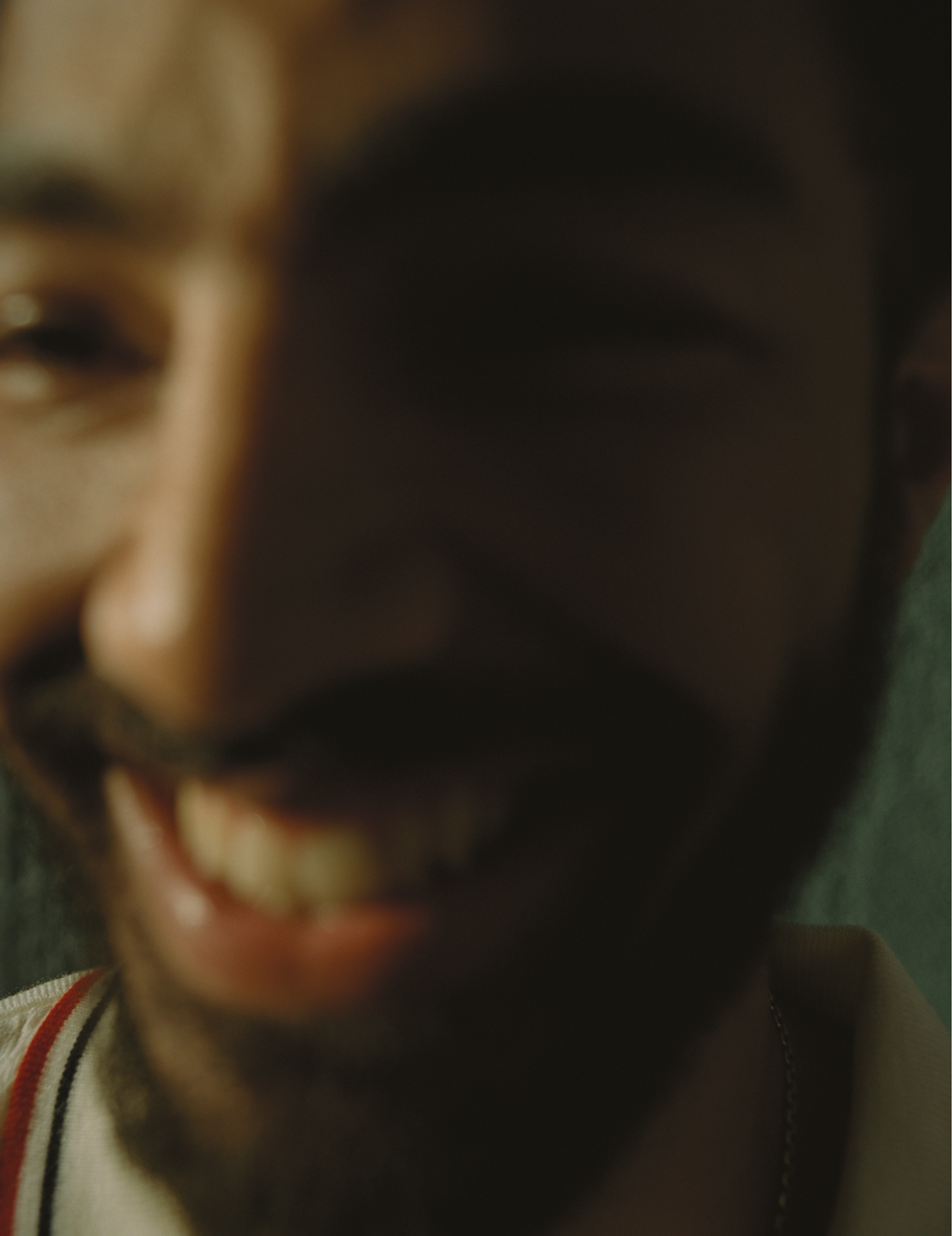
With the release came the emergence of Navy Blue: a low-profile Odd Future affiliate who had previously only been name-dropped during the interviews of “Futura Free” on Frank Ocean’s Blonde. His appearance on the Some Rap Songs track “The Mint”, became a fully-pronounced rap debut for Sage Elsesser, the Supreme-sponsored professional skater. Sage’s musical career began to gain momentum after that, in a genre critics dubbed “abstract hip-hop”, which is more accurately described as portraits of Black excellence through projects such as Àdá Irin and Song of Sage: Post Panic!. As he has continued to do since his first project, According to the Waterbearer, released on Soundcloud in 2015, the Brooklyn-based 25-year-old spills feelings of diaspora and homeliness within his community amidst looped soul samples and delicate electric piano chords.
Perhaps skateboarding is the sixth pillar of hip-hop? According to KRS-One, the five traditional pillars include deejaying, rapping, graffiti painting, breakdancing, and knowledge. However, without skating, cruder beats wouldn’t be matched with elaborate rhyme schemes. A different breed of hip-hop was borne from rappers spending hours attuning themselves to their bearings and their internal monologue. In conversation with each other, Thebe Kgositsile and Sage Elsesser showcase just that.
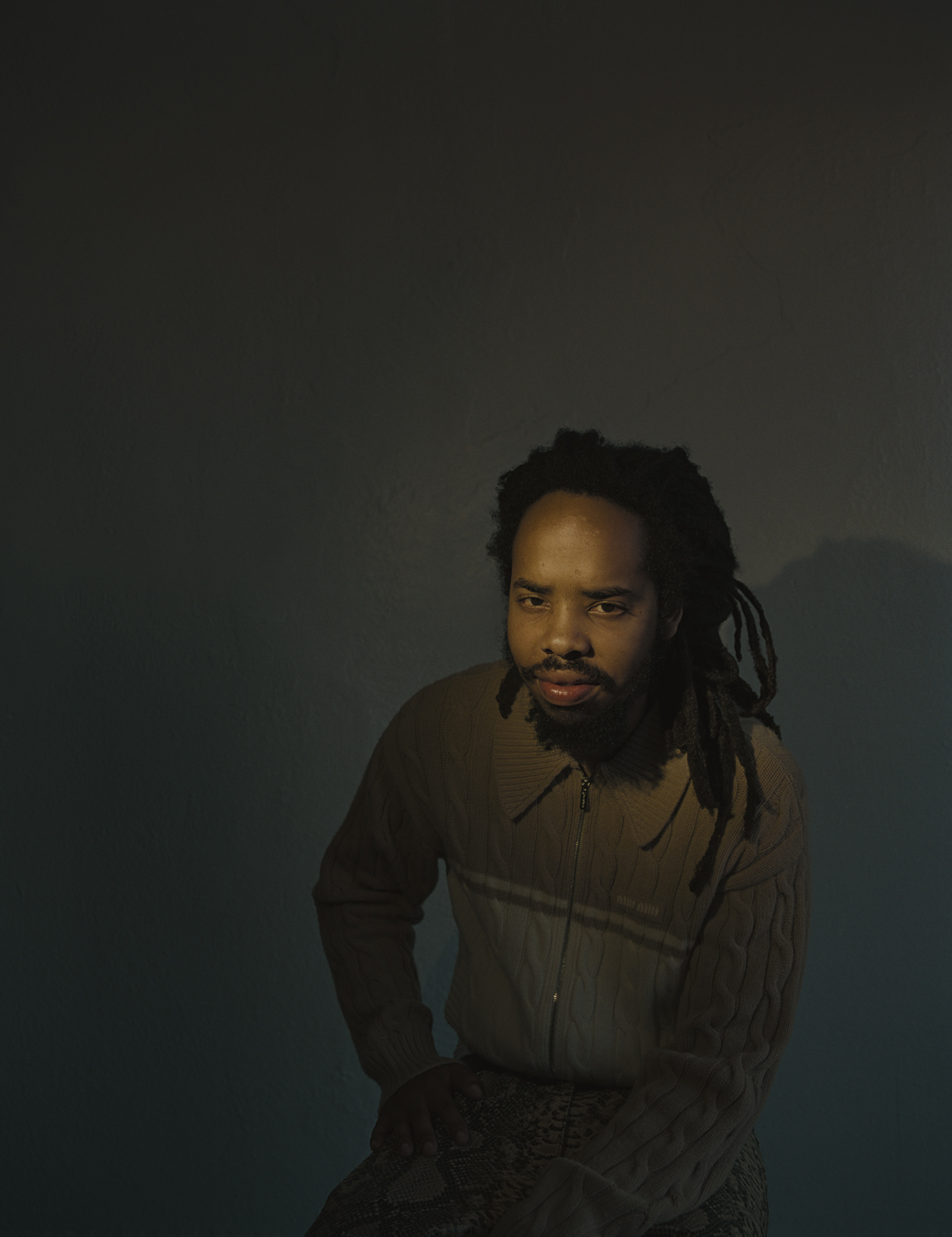
The two of you met in elementary school and then, later down the road, you became affiliated with Odd Future. What happened in between that period of time?
Thebe: Sage was on my Fairfax skateboard shit. He was a little n***a on Fairfax, so he knew Tyler. When I heard about the Odd Future shit I was trying to do music, so I was like, “Yo, can you tap me in?” and Sage was like, “Yeah, I gotchu.” Disgusting world takeover.
Sage: I gave Tyler Thebe’s MySpace page and that’s it. I was so little then, and Thebe was kicking it with the big kids. My man was smoking weed, and doing hoodrat things with his friends. I was definitely too little for that.
Thebe: It would have been weird if we were smoking with him at that age. Fifteen-year-olds getting high with twelve-year-olds is weird. Tyler and his friends were three years older than me, so they were damn near eighteen, finishing high school. It would be dumb and weird if n****s was posted up with a twelve-year-old.
How long have y’all been skating?
Thebe: Forever, son. Infinitum.

How much do your lives revolve around skate culture?
Thebe: Skate or die. Thrash for life. If I get drunk enough, I make my girlfriend watch skateboard videos.
Sage: I bet Thebe likes skateboarding more than me.
Thebe: This n***a is a professional skateboarder with shoes, a wheel, and bearing sponsor.
Sage: I don’t have a bearing sponsor. I only have a wheel, truck, and board.
Thebe: Do you skate for Ace [Trucks]?
Sage: Yup. I’m a Pilot.
Thebe: That’s fucking hard.
How do you think skateboard culture has influenced your style, fashion-wise?
Thebe: Pretty immensely. I feel like skate n****s are real utility-wearers; you’ve got to be able to do your shit in your clothes. I also didn’t really start caring about clothes until recently. I did, but I would go get clothes from whatever stores for free and just wear that shit. Talk to Sage, that’s the guy with clothes.
Sage: For sure. I think as a skateboarder you have to be comfortable – something that won’t ever cross the mind of a skateboarder is: “This looks good.” We’re not trying to get a look off if it’s uncomfortable.
Thebe: By the same token, when your shit’s right, you also skate real good. The hunt for good pants is a voyage.
Sage: I really only skate in track pants because I like having mobility.
Thebe: And you don’t wear big jeans. Big jeans bust.
Sage: I wear big jeans.
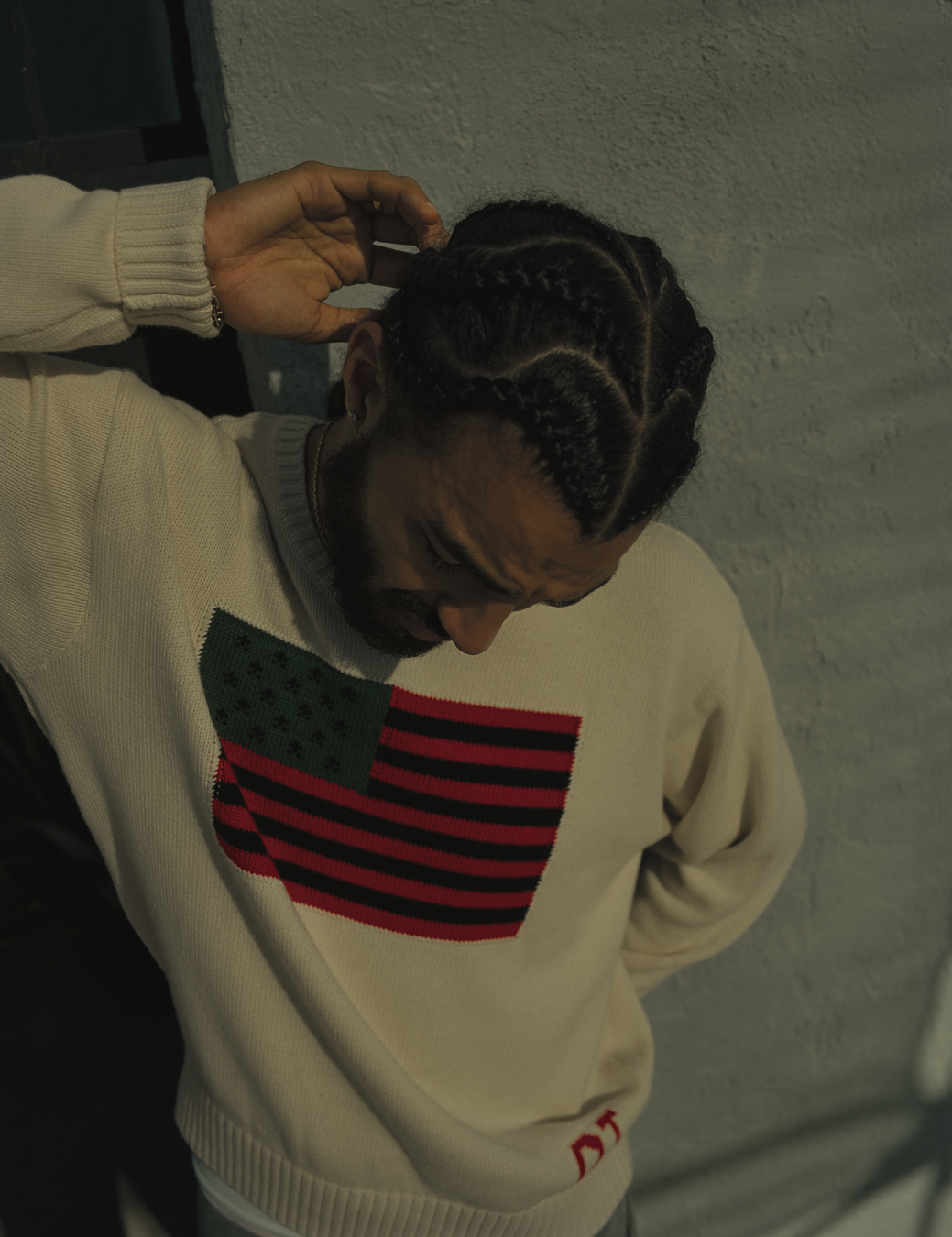
Thebe: Yeah, but big-ass jeans.
Sage: Not – [Laughs] No. No big-ass jeans.
Thebe: I got them big-ass jeans on me right now. [Shows Ksubi tag]
Sage: Classic. If there’s one thing about him…
Thebe: Royalty, heroism, and the streets. That’s three things.
Sage: Is that tag locked in forever or can you take it off?
Thebe: You can yank it off, which I’ll never do. I need n****s from three miles away to know that I have on Ksubi pants.
Do you think thrift culture is synonymous with skate culture?
Sage: For sure.
Thebe: I guess, but that shit’s weird now. What’s the difference between thrift culture and vintage culture?
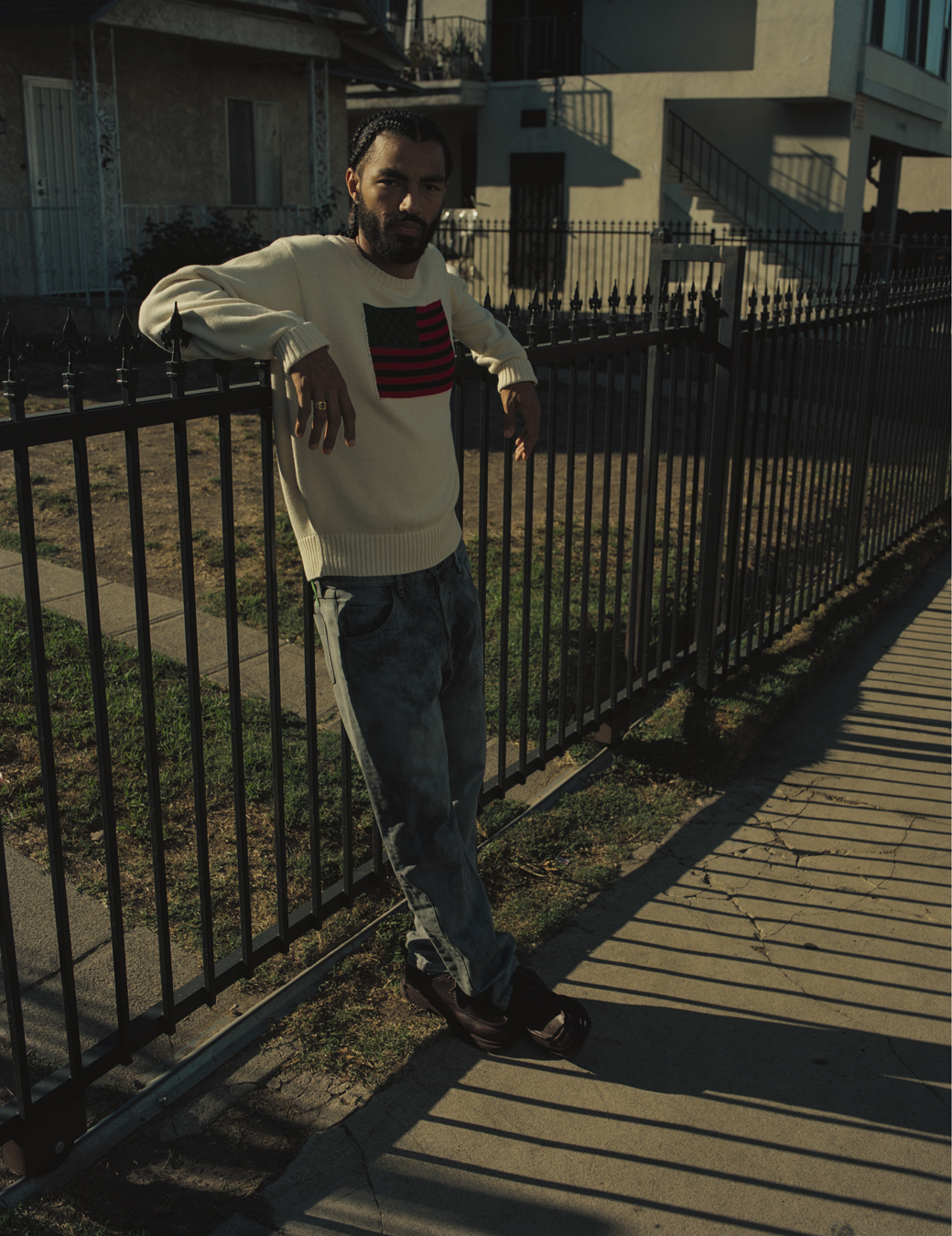
I think vintage just means that it’s more expensive.
Thebe: I can’t help but view that shit through the lens of my damn self. I be pulling up to these events and there’s Black regalia, and that shit is the most expensive, which is a similar culture to records too. African records – whether it’s soul or reggae or whatever – these grails that are part of Black people are hoarded up and priced to where n****s can’t get it.
I was at the show with the two of you a couple of weeks ago at Resident LA and Sage, you brought your mom out. Earl, you spoke with your mom at the MOCA. What role do your mothers play as you’re becoming fully-realised people?
Thebe: It’s your mother, man. You can’t exist without your mother. That shit be everything boi. I think you could do a drinking game with our music and take a shot every time one of us says “momma,” and you’d be really fucked up.
“I try to make music that someone can identify with. It makes me feel like I’m being of service to the world.” Sage Elsesser
Sage, your parents are Chilean and Black, Thebe your parents are South African and Black. How does that feed into your music and how does it inspire it?
Thebe: That shit is everything boi. It’s the foundation of what you’re standing on for you to reach new dimensions and old.
Sage: I agree. I was privileged. I was shown a lot of worldly music and literature. Mid-City Arts and Culture helped inform me to create the type of shit I wanted to create.
How do you feel about critics using the term “abstract hip-hop” to describe your music?
Thebe: The only box that I would subscribe to is an action. I think n****s just be rapping. To make a box too tailored is like picking apart a joke until it’s not funny. That doesn’t interest me.
Sage: I can’t stand when n****s are like: “Trap.”
Thebe: Exactly, because shit be an action. It’s not trap music unless a n**** is rapping about trapping or drugs. It makes it easier for people to pick it apart. If you have to process the fact that it’s rap, and it’s Playboi Carti or something, that’s hard for people to do.
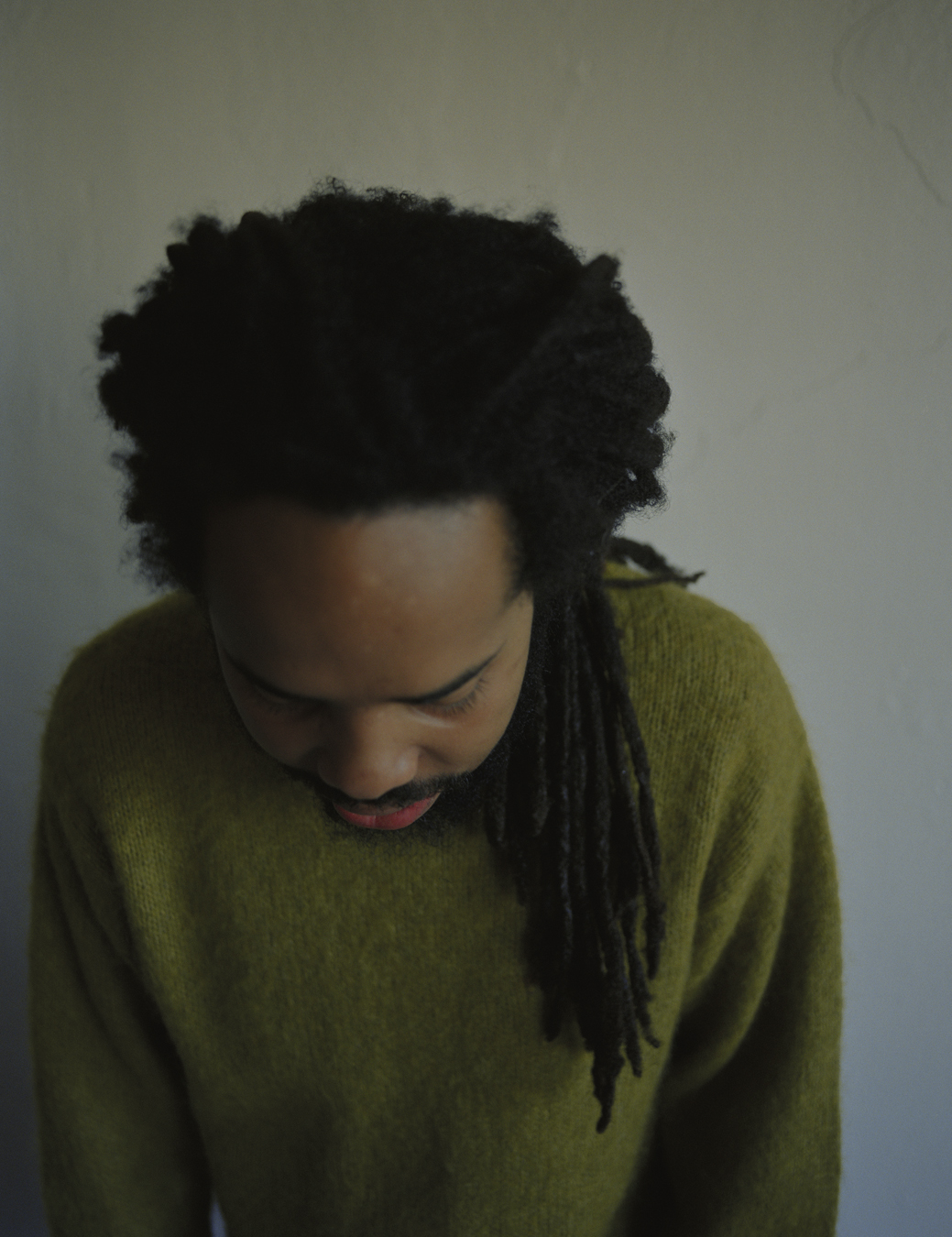
How does it feel to know that your music has had such a deep impact on your audience?
Thebe: I’ll be like, “Thank you.”
Does it create pressure for you?
Thebe: No, you kind of need to be selfish and be doing it for yourself.
“You kind of need to be selfish and be doing it for yourself.” Thebe Kgositsile
What’s your relationship like with the music that you had been posting on Soundcloud before Àdá Irin?
Sage: It was a nice way to express myself. “These songs aren’t great, but this is how I feel.” I made those songs on my laptop with Apple headphones, and I thought it was fun. It was a little hobby I had. I had been making beats forever; I’ve been rapping forever too but I never really honed into it. I got extremely depressed when I was eighteen – I was depressed all through my teenage years, and out of that birthed Navy Blue. Hopefully, this chapter will end soon and I’ll move on to something different; a different name or something. I eventually want to go by Sage. I have gone through this transmutation period – this is where my opinion differs from Thebe where he says, “Of course you do it for you.” I take into account that for a lot of the music that inspires me, I’m the listener. Even though I know Thebe really well, I still digest his music as a listener. For me, that’s really important. I try to make music that someone can identify with. It makes me feel like I’m being of service to the world. People value what I say and I have something to say.
How did “Some Rap Songs” affect the trajectory of your career?
Sage: It’s a great song, “The Mint”, and it was like being introduced to the world. On a great album. On an Earl album. It was nice because he was working on it a lot at my apartment in New York. I did a few beats on there and it happened naturally. I had already been making joints and dropping stuff on Soundcloud, but it was the big reveal because I had been trying to be anonymous for a while. Not on some DOOM, not-showing-my-face shit, but I wanted it to be digested simply for the offering, for the music. It definitely changed the trajectory of my career, for sure. I don’t think a lot of people pop out like that.
What’s your mental state right now?
Sage: Serene.
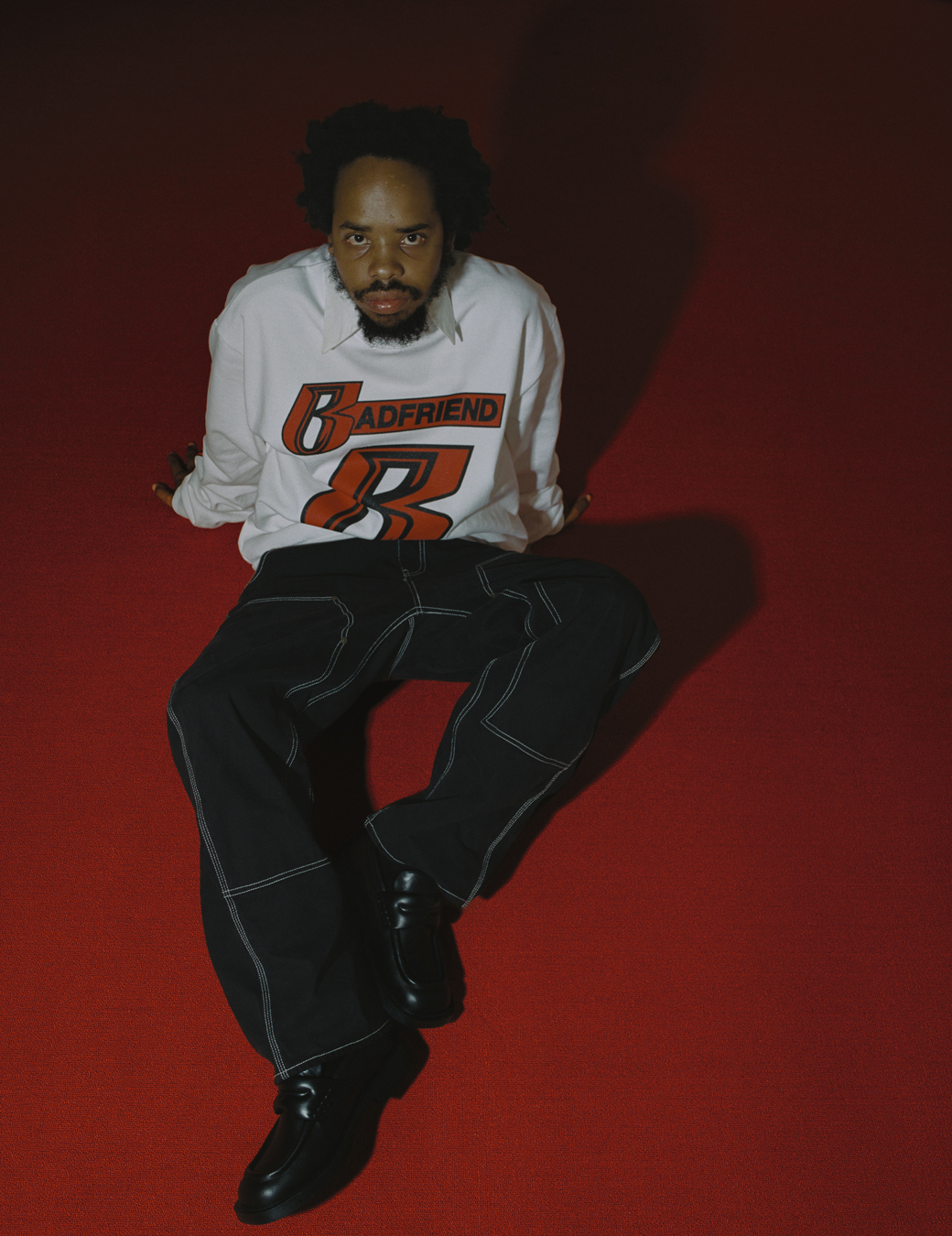

Credits
Photography Steven Traylor
Fashion Tamia Mathis
Photography assistance Harris Mizrahi
Fashion assistance Joanne Lee and Brezhanae Townsend
Production Camera Club
Special Thanks to Chroma Center, The Icon and Pia Mileaf-Patel
